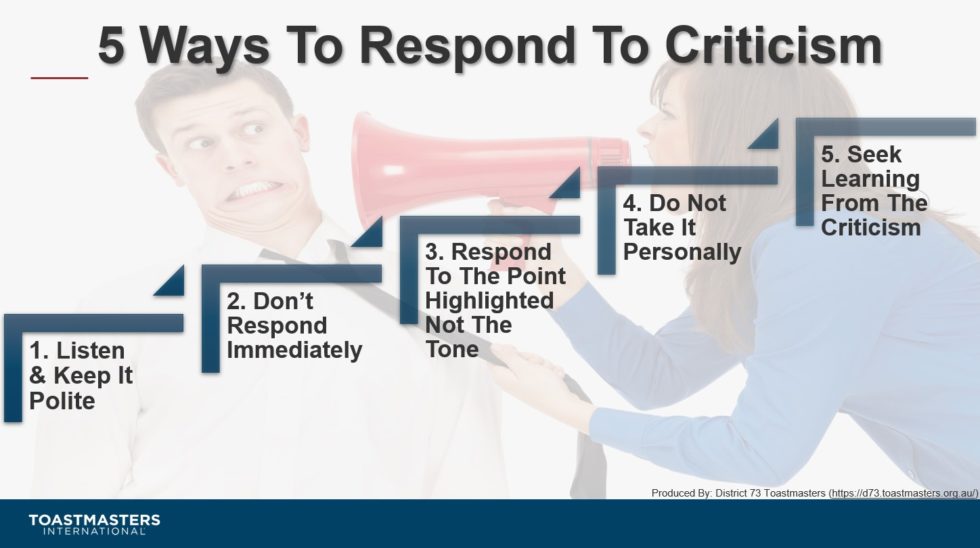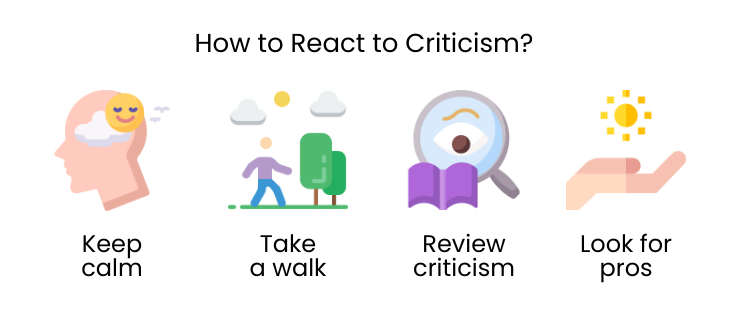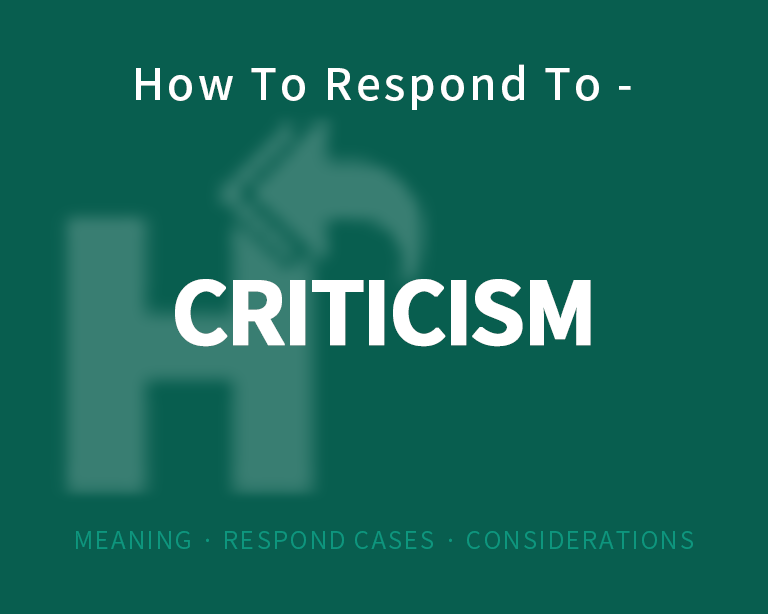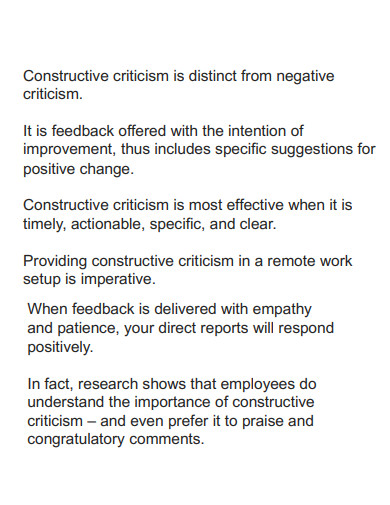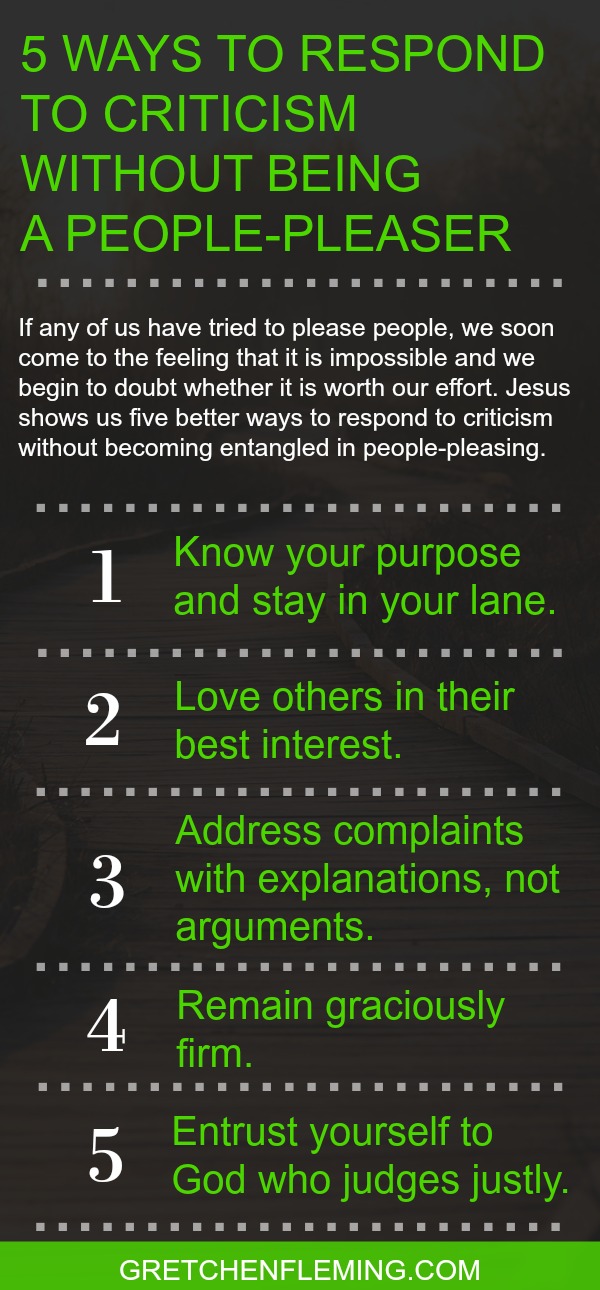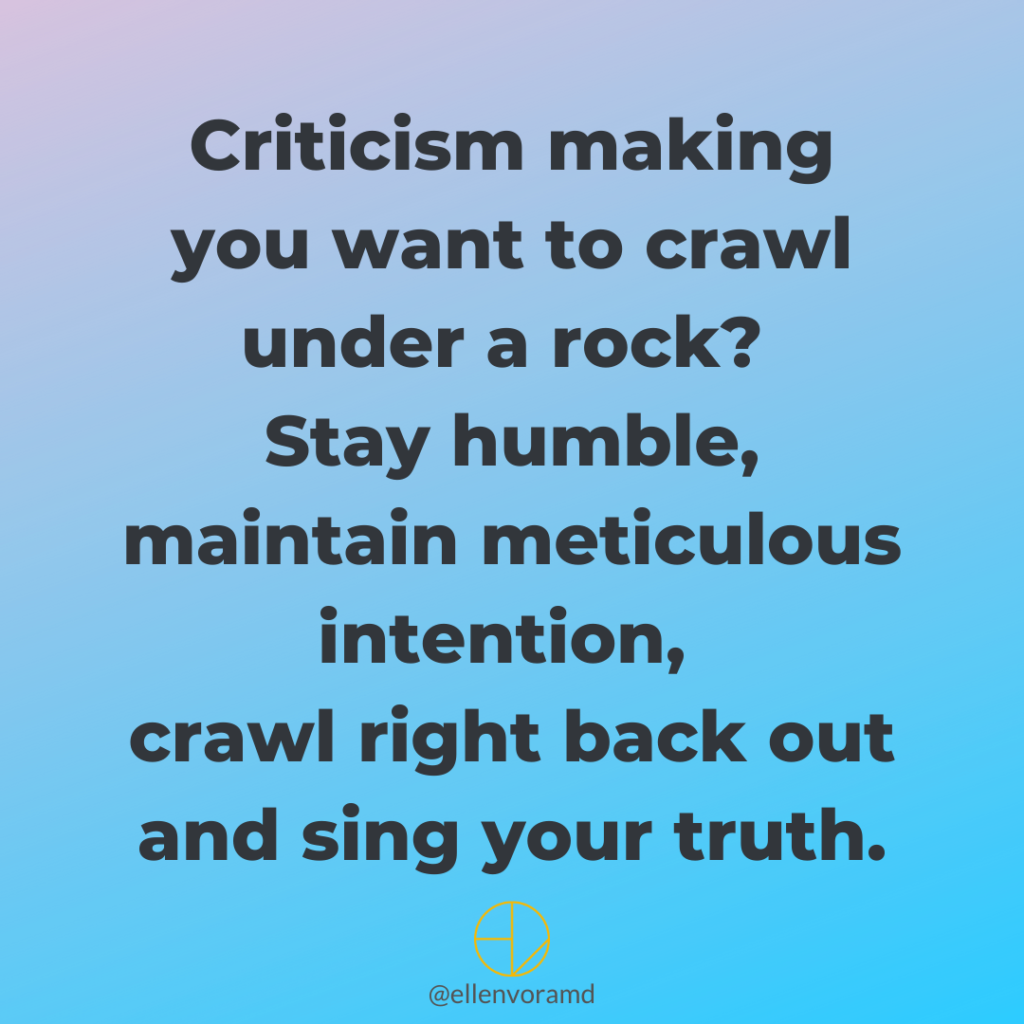How To Respond To People's Criticism

Navigating criticism, whether in professional or personal spheres, is a universal challenge. Understanding effective response strategies is crucial for maintaining relationships and fostering personal growth. Experts emphasize the importance of managing emotional reactions and employing constructive communication techniques.
The ability to receive and respond to criticism productively impacts individuals, teams, and organizations. Ignoring criticism can lead to stagnation, while reacting defensively can damage relationships. This article explores strategies for responding to criticism in a way that promotes understanding and positive outcomes.
Understanding the Source
First, identify the source and intent behind the critique. Is the criticism offered with good intentions, or does it stem from malice or misunderstanding? Understanding the motivations behind the words can significantly shape your response.
Consider the credibility of the person delivering the criticism. Is it someone with relevant experience or expertise? Their background can provide valuable context for evaluating the criticism's validity.
Managing Emotional Reactions
The initial reaction to criticism is often emotional. Taking a moment to pause and breathe before responding is essential. This brief delay allows for emotional regulation and a more thoughtful reply.
Recognize that criticism, even when delivered poorly, can contain valuable insights. Resist the urge to immediately defend yourself or dismiss the feedback. Focus on actively listening and understanding the other person's perspective.
Active Listening and Clarification
Employ active listening techniques to ensure you understand the criticism. Pay attention not only to the words spoken but also to the tone and body language.
Ask clarifying questions to gain a deeper understanding of the concerns. Instead of assuming you know what the person means, seek specific examples and details. For example, "Can you give me a specific instance where this happened?"
Responding Constructively
Once you understand the criticism, respond in a calm and respectful manner. Acknowledge the person's concerns and show that you are taking their feedback seriously.
If you agree with the criticism, admit your mistake and outline steps you will take to improve. This demonstrates accountability and a willingness to learn. Avoid making excuses or shifting blame.
If you disagree with the criticism, explain your perspective calmly and rationally. Provide evidence or examples to support your viewpoint, but do so without being defensive or dismissive.
Seeking Feedback and Reflection
Regularly seek feedback from trusted sources. Proactively soliciting input creates a culture of continuous improvement and demonstrates a commitment to personal and professional development.
After receiving criticism, take time to reflect on the feedback and its implications. Consider how you can use the criticism to improve your performance or behavior in the future.
The Importance of Context
The appropriate response to criticism varies depending on the context. Consider the setting, the relationship with the person offering the criticism, and the potential impact of your response.
In a professional setting, it is often best to address criticism privately. Avoid engaging in public arguments or confrontations.
Maintain a professional demeanor at all times.
Turning Criticism into Opportunity
Ultimately, criticism can be a powerful tool for growth. By learning to respond effectively, individuals can transform negative experiences into opportunities for improvement. Embrace criticism as a chance to learn, adapt, and develop stronger relationships.
Remember that receiving and responding to criticism is a skill that can be developed over time. Practice active listening, emotional regulation, and constructive communication to become more proficient at navigating these challenging interactions. According to Dr. Emily Carter, a leading expert in organizational psychology, "Effective responses to criticism are hallmarks of strong leadership and healthy relationships."
